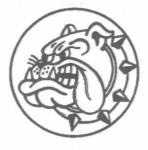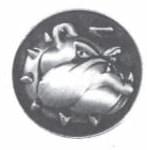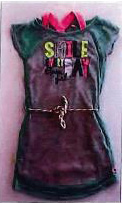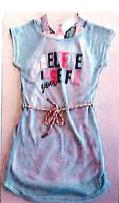- Home
- News & insights
- Insights
- Ex parte injunctions…
2020年5月18日
Brands update - June 2020 – 8 / 9 观点
Ex parte injunctions in the Netherlands
- IN-DEPTH ANALYSIS
In 2007, the Netherlands implemented EU Directive 2004/48 on the enforcement of intellectual property rights (the Directive) into the Dutch Code for Civil Procedure (DCCP). This has led to the possibility for a Dutch court to grant an injunction without hearing the defendant (also referred to as an ex parte injunction), something that was not possible before under Dutch law.
In 2008, the year after its implementation, Dutch courts handled many ex parte requests, of which 44 were published in total. However, in the following years, the number of published decisions decreased significantly, while the number of requests remained stable. This most likely means that Dutch courts are granting fewer ex parte injunctions and are applying the criteria for granting ex parte injunctions more strictly.
In this article, we will briefly outline the procedural aspects regarding ex parte injunctions, what potential infringers can do to protect themselves, what the criteria for granting an ex parte injunction are, the recent case law, and how an ex parte injunction can be revoked.
Procedural aspects
Article 1019e(1) DCCP (implementation of Article 9(4) Directive) stipulates that in urgent cases – in particular where any delay would cause irreparable harm to the IP right holder – the preliminary relief judge can grant an injunction without hearing the defendant to prevent any imminent infringement of an intellectual property right. From case law, it follows that an ex parte injunction can also be imposed when the infringement has already taken place or is occurring, if further infringement is imminent.
An injunction may also be issued under the same conditions against an intermediary whose services are being used by a third party to infringe an intellectual property right. It is possible that the court will only grant the ex parte injunction under the condition that the IP right holder files a deposit or some sort of other monetary guarantee, to safeguard the interests of the alleged infringer.
The IP right holder must initiate the proceedings by sending a written request to the court. If the court is not willing to grant the injunction or wants a clarification on certain aspects of the request, it may ask the IP right holder to provide more information. The request can then be modified (or withdrawn if it becomes clear that there will most likely be no grant), after which the injunction may be granted – all without the infringer being heard, and without the infringer being notified that a request has been filed and withdrawn. The court usually grants the ex parte injunction on the day it receives the request or the following day1; however, it can also take a week2.
Together with the injunction, the court may impose the infringer to instruct its distributors in writing not to sell the infringing products anymore3. The request for an ex parte injunction may also include a request for other ex parte measures, such as seizing evidence and describing in detail the infringing products. However, all other actions (such as a recall) must be granted in 'normal' preliminary injunction proceedings or proceedings on the merits in which the infringer is heard (inter partes). The court can decide that the infringer shall forfeit a penalty in case of non-compliance with the injunction, and this is almost always the case.
Enforcement of the ex parte injunction is at the risk of the IP right holder. Article 1019g DCCP stipulates that if an ex parte injunction has been unjustly enforced, the alleged infringer can claim compensation for any damages caused by the enforcement of the injunction. This means that there is a strict liability for the IP right holder: if the injunction has been revoked or it has been determined in proceedings on the merits that, for example, there is no infringement or valid IP right, this is sufficient to establish that the enforcement was unlawful. As a consequence, the IP right holder must compensate the damages of the alleged infringer.
The court must, when granting an ex parte injunction, determine a reasonable deadline before which the IP right holder has to file proceedings on the merits. In practice, this deadline is usually set at 6 months as of the date of service of the injunction to the infringer. The injunction ceases to have effect if the IP right holder does not file proceedings on the merits within this period and the alleged infringer files a declaration to that effect at the court registry.
Protective letters
In cases concerning patents and plant variety rights, a potential infringer that expects an ex parte request can send a letter to the court in which objections are raised against the grant of an ex parte injunction, either because the IP right is likely to be invalid or because the litigious product does not infringe the IP right (also referred as 'protective letters'). Filing such a protective letter is only possible at The Hague District Court because it has exclusive jurisdiction in cases concerning patents and plant variety rights. A protective letter stays valid for 6 months after filing, but can be extended for 6 months multiple times by sending an email to the court.
In assessing the ex parte request, the court will weigh the counter arguments in the protective letter. The court cannot decide to hear the infringer. If the court considers that hearing the infringer is necessary, it will reject the ex parte request because inter partes preliminary relief proceedings will be more appropriate.
If the court is assessing an ex parte request and there is a protective letter involved, the court will inform the IP right holder. At the request of the IP right holder, the court will then send a copy thereof. Upon receipt, the IP right holder can send the court a substantive response or withdraw the request. The infringer that submits a protective letter must therefore be aware that its defences can already become known and can be used by the IP right holder in subsequent proceedings. Furthermore, if the request for an injunction is denied by the court the potential infringer will not know that a copy of the protective letter was sent to the IP right holder until there are any subsequent proceedings.
Until a few years ago, it was also possible to file protective letters in cases concerning other intellectual property rights (trade marks, copyrights, designs etc) at the court of The Hague and a few other courts in The Netherlands. Since 1 August 2017, however, it is no longer possible to file protective letters in other IP matters than patent rights and plant variety rights at any Dutch district court. Potential infringers should therefore seek for other means of protecting their position in the Netherlands, for example by starting declaration of non-infringement proceedings or pro-actively attack the trade mark or design rights at the Benelux IP Office or at EUIPO.
Criteria for an ex parte injunction
Urgent cases
Article 1019e(1) DCCP stipulates that an ex parte injunction may be granted in 'urgent cases, in particular where any delay would cause irreparable harm to the IP right holder'. This notion of urgent interest is much more strict than the urgent interest that is required in inter partes preliminary relief proceedings. Also, in inter partes preliminary relief proceedings 'urgent interest' is a requirement for grant; this means that the outcome of proceedings on the merits cannot be awaited. However, in an ex parte procedure there must be 'super urgent interest', in the sense that the outcome of inter partes preliminary relief proceedings cannot be awaited.
Typical examples of 'urgent cases' are:
- an exhibition that lasts a few days and where infringing products will be demonstrated4
- counterfeit that has been recently discovered, and
- piracy.
In general, the IP right holder should file the ex parte request within a few weeks after discovering the infringement. After this period, there will be doubt about the urgency of the case. After all, a Dutch court can handle inter partes preliminary relief proceedings within a month. Courts prefer to handle cases in inter partes preliminary proceedings because then the defendant can be heard. In addition, if the IP right holder waits more than a few weeks the question arises if the damage is actually irreparable. In other words, the IP right holder should demonstrate why inter partes preliminary relief proceedings will take too long and the outcome of such proceedings cannot be awaited.
Obviousness of the infringement
Another requirement for the grant of an ex parte injunction is that the infringement in principle must be quite obvious counterfeit, for example. However, the higher the urgent interest, the less an infringement needs to be obvious. These two criteria can therefore be regarded as interconnected vessels.
Principle of subsidiarity
According to some case law, the court can only grant an ex parte injunction if the IP right holder has previously sent a demand letter to the alleged infringer5. This means that in assessing the ex parte request, the court must take into account the principle of subsidiarity.
An example of this is the decision of 20 February 2020 of the District Court of Rotterdam6. The case concerned a retailer in automotive parts that sold counterfeit Audi parts on a large scale, infringing Audi's trade mark. The court revoked an ex parte injunction previously granted because Audi had not demanded the retailer stop the infringement prior to filing the request for an injunction. In doing so, Audi deprived the retailer of the opportunity to explain themselves or to cease voluntarily the alleged infringement.
Recent case law
We will now look at the way Dutch courts handled ex parte requests over the past years.
 |
 |
|
|---|---|---|
| The Bulldog's trade mark | Magic Leaf's trade mark | |
The first decision, dated 7 September 20187, is about the famous coffee shop The Bulldog in Amsterdam. The owner of The Bulldog had registered a figurative trade mark, which consisted of a bulldog, in the class for articles for use with tobacco. Magic Leaf is a souvenir shop in Amsterdam that sells a cannabis grinder that has a similar sign as The Bulldog, The court accepted The Bulldog's argument that there was urgent interest in view of the fact that Magic Leaf acts as a distributor that probably has a large amount of stock.
An ex parte injunction is therefore the only effective measure to ensure an effective enforcement of the trade mark, because in inter partes preliminary relief proceedings, Magic Leaf will use the time until the decision to sell the remaining stock. The court also accepted The Bulldog's argument that Magic Leaf infringes the trade mark. The court did not need to assess the principle of subsidiarity because The Bulldog had contacted Magic Leaf previous to the request for an injunction, which did not had any effect. The court therefore granted an ex parte injunction under a penalty of € 5,000 per day for non-compliance.
 |

|
|
|---|---|---|
| Quapi's copyrighted dress | Jola's summer dress | |
In a decision of 28 February 20198, a manufacturer of children's clothing, Quapi, requested the court to grant an ex parte injunction against Jola, that owns 52 fashion stores in The Netherlands. The court accepted Quapi's argument that it has a valid copyright on a summer dress and that Jola infringed it by selling a similar summer dress. The court also accepted Quapi's argument that there was an urgent interest because it would incur irreparable harm in view of the large number of shops of Jola, the expected popularity of the copycat dress, and its low price. That would lead to a loss of exclusivity of Quapi's original design (copyright). The court therefore granted an ex parte injunction under a penalty of €10,000 per day for non-compliance.
In a decision of 17 June 20199, Stichting Brein, an anti-piracy organisation, requested the court to grant an ex parte injunction against the administrator of a Facebook group. The administrator illegally uploaded ebooks on a large scale that could be downloaded by the members of the group. The court accepted Brein's argument that there was urgent interest in view of the fact that the copyright holders incur irreparable harm (that is, lost revenue) because they do not receive any compensation from the administrator.
The court also accepted Brein's argument that a demand letter did not need to be sent prior to filing the request, because they knew from experience that it would have no effect, as the administrator can easily continue his activities under another name. The court therefore granted an ex parte injunction under a penalty of €2,000 per day for non-compliance.
Review of the ex parte injunction
Article 1019e(3) DCCP stipulates that the preliminary relief judge who granted the ex parte injunction, can review the injunction on request of the alleged infringer.
The alleged infringer does not need to send the request for review within a specific time limit. The strict requirement of urgent interest for grant of an ex parte injunction does not apply when reviewing it. In one case, the infringer waited 6 months after the injunction was granted, to file a request for review, which was not problematic according to the court10.
The court that grants the injunction can set a date and time for a court hearing to review the injunction, but the alleged infringer can also request a date that is earlier or later. In practice, the court hearing for review can take place within a week or less after the ex parte injunction has been granted.
Because an ex parte injunction is granted without hearing the alleged infringer the court sets high standards on the trustworthiness of the information provided by the IP right holder. The court will penalise a lie, incorrectness or incompleteness by revoking the injunction. The IP right holder must therefore provide full disclosure on the case and for example refute any defences that it has knowledge of.
Other reasons for the court to revoke the injunction are lack of urgent interest, doubt about the existence/validity of the IP right and uncertainty about the infringement. The burden of proof continues to rest with the IP right holder. Those criteria in particular have been applied more strictly by the courts in the past years. If the court has any doubt in this context, it will deny the request stating that inter partes preliminary relief proceedings should take place.
An alleged infringer that forfeited penalties due to non-compliance with the injunction, can only have the penalties overturned by requesting a revocation. This result cannot be achieved in parallel proceedings on the merits.
Conclusion
Since its introduction in 2007, the ex parte injunction has proven to be an effective instrument for IP right holders. The number of published injunctions decreased in the last few years which means that the courts are applying the criteria for grant more strict. Where the criteria for grant are concerned, IP right holders should act fast when discovering an infringement and the infringement must be obvious.
In most cases, the IP right holder must send a demand letter before filing a request. In addition, the IP right holder must be as complete as possible in its request. If this is not the case, the court will revoke the injunction and the IP right holder will be responsible for any damages caused by the ex parte injunction.
The procedure for grant is only in writing. This means that also under the present coronavirus-related measures, an ex parte injunction may be granted by the Dutch courts.
1 See District Court Rotterdam 17 June 2019, darts-769-308-G-nl (Brein), District Court Amsterdam 7 September 2018, IEF 17955 (The Bulldog/Magic Leaf), District Court Utrecht 27 August 2019, darts-184-789-H-nl-4 (Recor Bedding); for an example of a patent case taking several days, see District Court The Hague 31 August 2018, ECLI:NL:RBDHA:2018:10449 (Zavod Prodmash), par. 2.17-2.19.
2 District Court Rotterdam 20 February 2020, ECLI:NL:RBROT:2020:1770 (Audi), par. 2.4 en 2.8.
3 District Court Amsterdam 26 November 2010, IEF 9253 (Fashion Angels/Wibra).
4 District Court The Hague 31 August 2018, ECLI:NL:RBDHA:2018:10449 (Zavod Prodmash), par. 2.17-2.19.
5 District Court The Hague 24 July 2009, IEPT20090724 (Glaxo SmithKline/Pharmachemie), par. 2.3, District Court The Hague 11 May 2010, IEPT20110511, par. 2.2.
6District Court Rotterdam 20 February 2020, ECLI:NL:RBROT:2020:1770 (Audi), par. 4.6.
7 District Court Amsterdam 7 September 2018, IEF 17955 (The Bulldog/Magic Leaf).
8 District Court Zeeland West-Brabant 28 February 2019, darts-208-927-G-nl-2 (Quapi/Jola).
9 District Court Rotterdam 17 June 2019, darts-769-308-G-nl (Brein).
10 District Court The Hague 28 April 2015, IER 2016/43, (Ecatel/Premier League), par. 4.2-4.3.
本系列内容
Related Insights

Vegan food fight: Does Nestlé's Incredible Burger infringe Impossible Burger?
作者 Lucas de Groot 以及 Maarten Rijks

